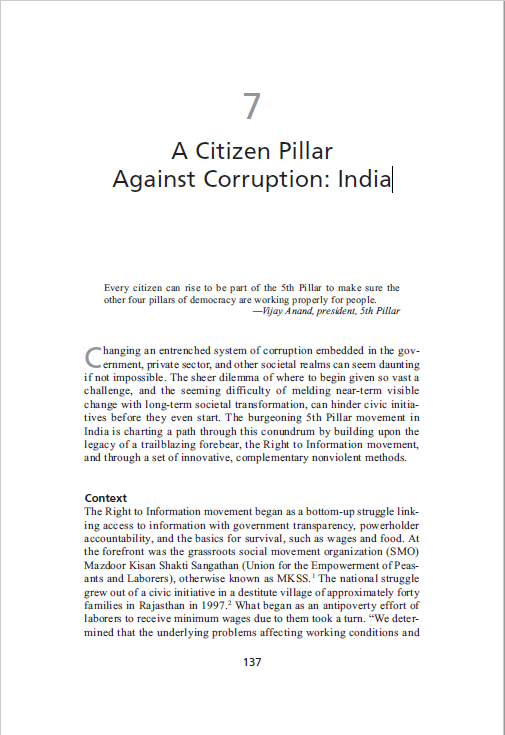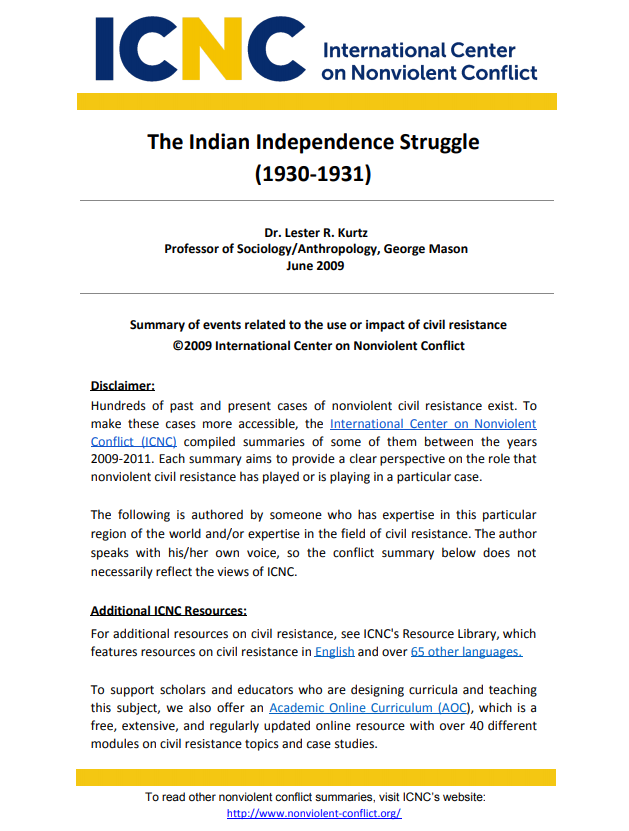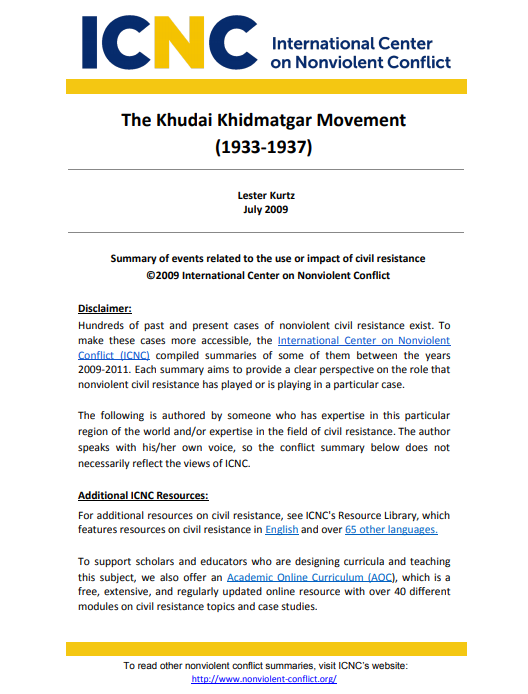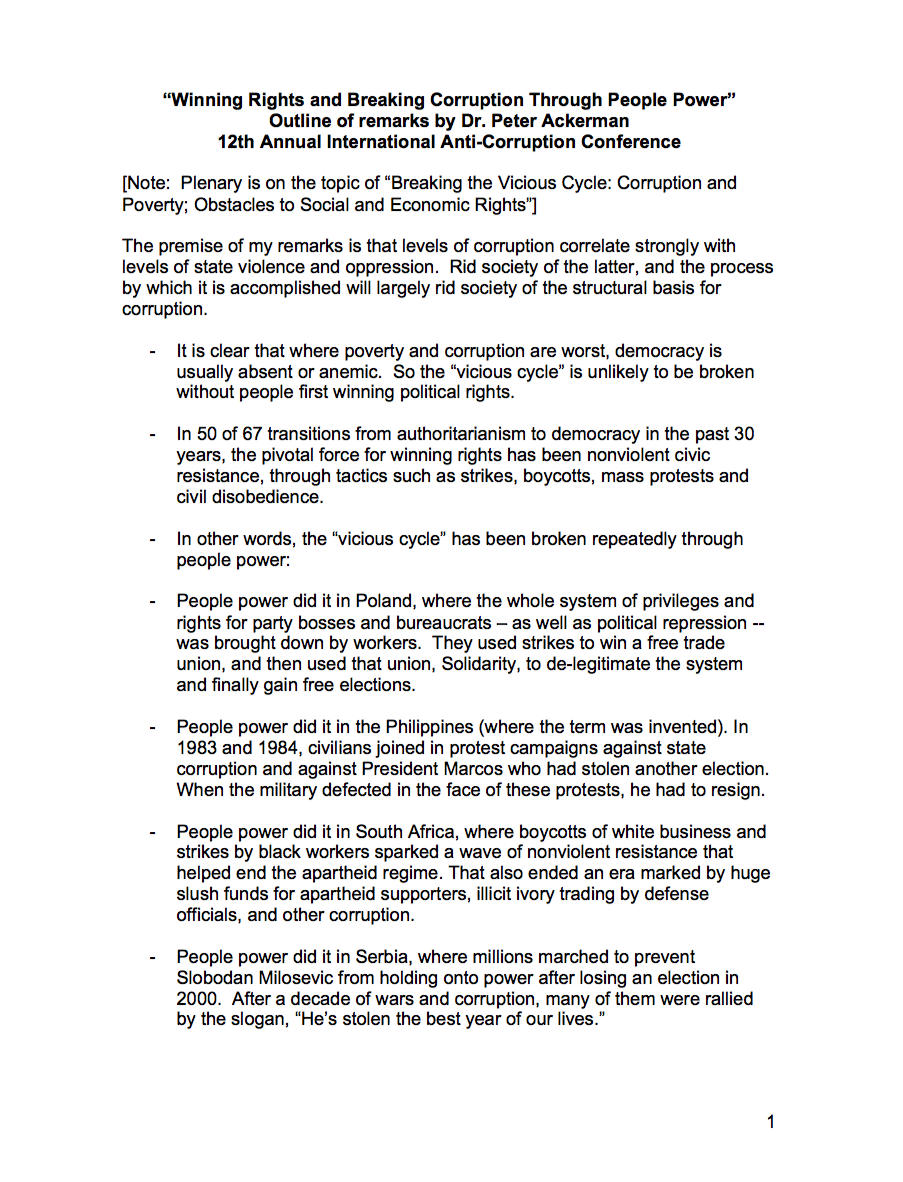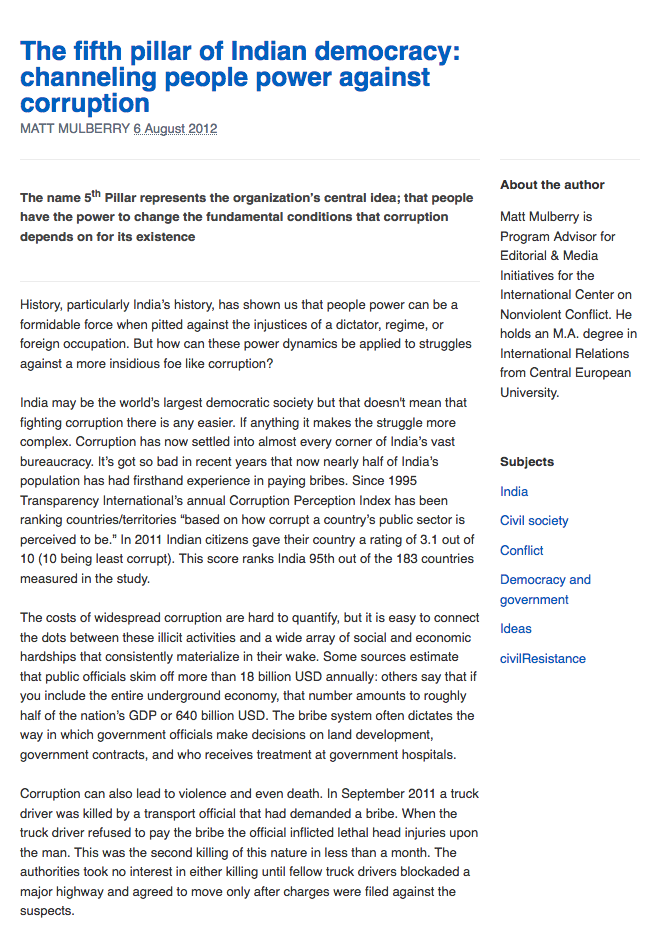
The Fifth Pillar of Indian Democracy: Channeling People Power Against Corruption
From the article: The name 5th Pillar represents the organization’s central idea; that people have the power to change the fundamental conditions that corruption depends on for its existence
opendemocracy.net, August 6, 2012
